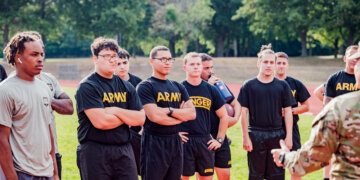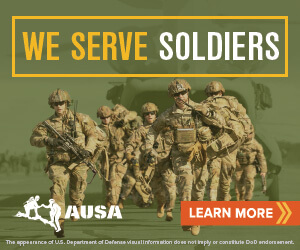The term military-friendly is the newest buzzword attached to marketing campaigns focused on attracting service members, veterans, and their families. But, how can student veterans decipher between a catchphrase and an institution that is truly pro-military? Experts say research, research, research.
Military education benefits make veterans an attractive demographic for post-secondary institutions. The challenge becomes navigating through hundreds of school options to find a school that fits your needs and schedule. Ashley Adamovage, founder and president of Southeastern Council on Military Education (SECOME) — a multistate coalition of educational institutions, corporations and military organizations providing support for students in North Carolina, South Carolina, Georgia and Alabama, recommends students find a college or university that offers a supportive learning experience through action.
“Student veterans should first understand what it means to truly be “military-friendly,” while understanding what their individual needs will be once they enroll in higher education. Many institutions have adopted the phrase “military-friendly,” however, claiming to support the military student should be policy, not just a slogan,” she said. “It is important to select a school where policy ensures the success of student veterans through enrollment to graduation and beyond.”
Understanding a school’s value
Accreditation determines an institution’s value after an agency — regional or national — evaluates what standards the school meets. This is especially important when the time comes to use that degree on a resume and job application.
The Council for Higher Education Accreditation (CHEA), for example, “is an association of 3000 degree-granting colleges and universities and recognizes 60 institutional and programmatic accrediting organizations,” according to its website. It conducts periodic reviews of institutions. CHEA also houses a database of over 7000 schools, accredited by itself or a Department of Education-approved organization. Checking the list is a good first step in narrowing down the field of choices: http://www.chea.org.
Reviewing performance
Proof is in the numbers — and in opinions. Just as customers check online reviews before purchasing products or services, students should do the same. This is one of the most expensive and important investments of their life. Adamovage shares there are several indicators that can help student consumers gauge what level of service they will receive.
“[Students] should request data from an institution that verifies high retention and graduation rates. In addition, they should review student feedback, and satisfaction of the institution itself,” she said. “Finally, students should be aware of their individual needs and their ultimate goal when completing a program of study. If it is to obtain a prestigious career after graduation, then they should perhaps look into the school’s career services and the partnerships in which they have to aid students in career placements after program completion.”
Social media is a great option for seeing what other students have to say about instructors and schools. Admissions is also a starting point to ask for the above data. Another option is to connect with the Student Veterans of America (SVA) — an organization providing military veterans with the resources, support, and advocacy needed to succeed in higher education and following graduation. Chapters are located on campuses around the globe and members can offer insight from students with similar needs.
Checking for support services
After researching performance and rating, students should look at what support exists beyond registration. Adamovage says there are ways a school can demonstrate a military supportive culture.
“Simply stated, it is the responsibility of the institution to support its students, while maintaining accreditation standards and offering quality programs. … Policy should reflect an institution’s support to military-affiliated students that are designed to increase student completion rates in order to obtain institutional strategic goals, such as increase retention and graduation rates,” she said. “Quality support services and programs that are implemented by institutional policy, should include best practices such as, but not limited to, awarding applicable academic credit from military experience, priority enrollment, military-affiliated career services, scholarships in addition to DOD and VA benefits, department within an institution solely focused to supporting military-affiliated students (i.e. one point of contact to alleviate burdens that arise from navigating through a large bureaucracy), and faculty and staff trainings to increase knowledge and awareness of military-affiliated students.”
An example of a military-friendly characteristic
There are several places to look to determine if a school is military-friendly. One example is, does it have a designated department for student veterans? A simple search of the school’s website will answer that question. Adamovage adds, if military students have concerns, formal complaint systems exist through the DOD and VA. State Advisory Councils on Military Education (ACMEs) — like SECOME — also offer an outlet for military-affiliated students to access support. Contact information for current ACMEs can be found online.
Read comments


































